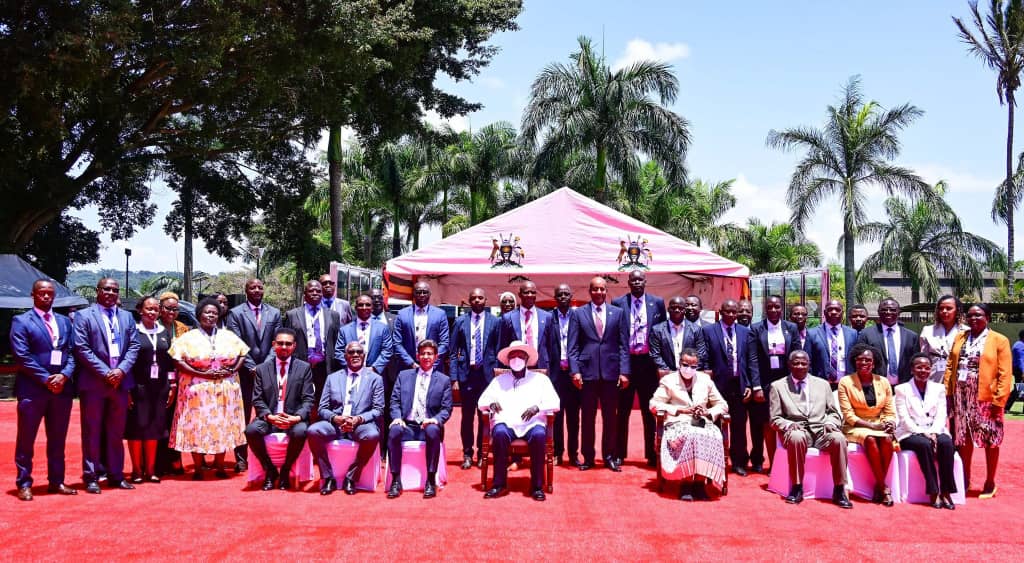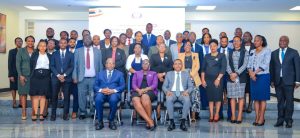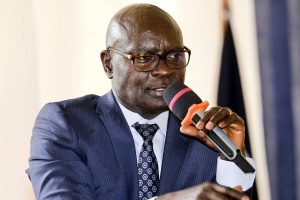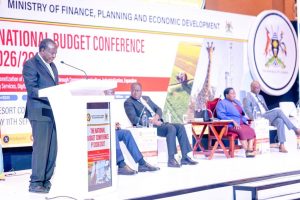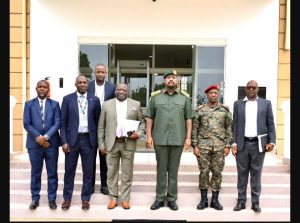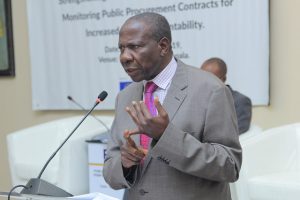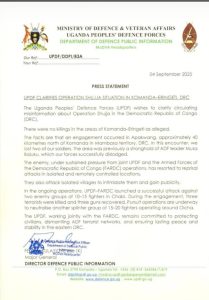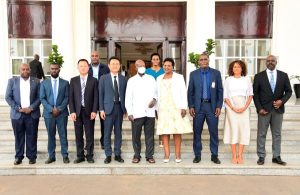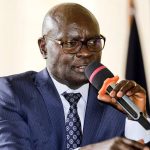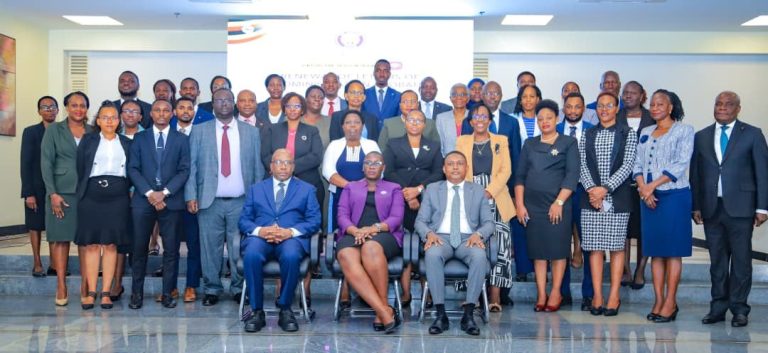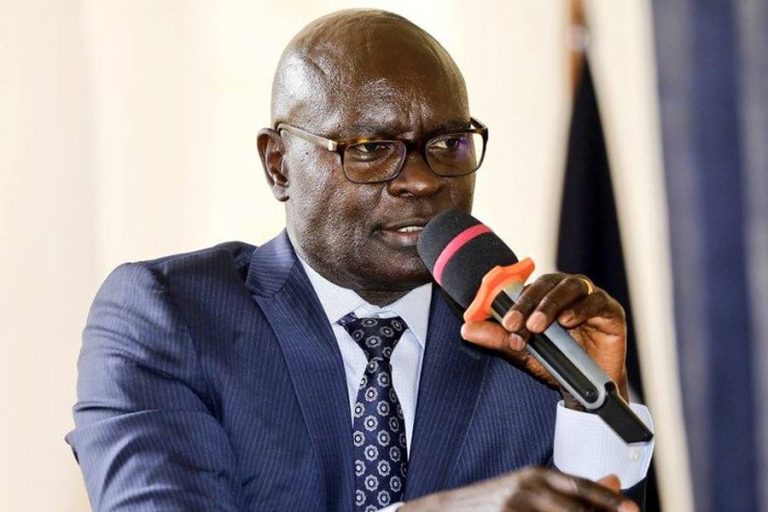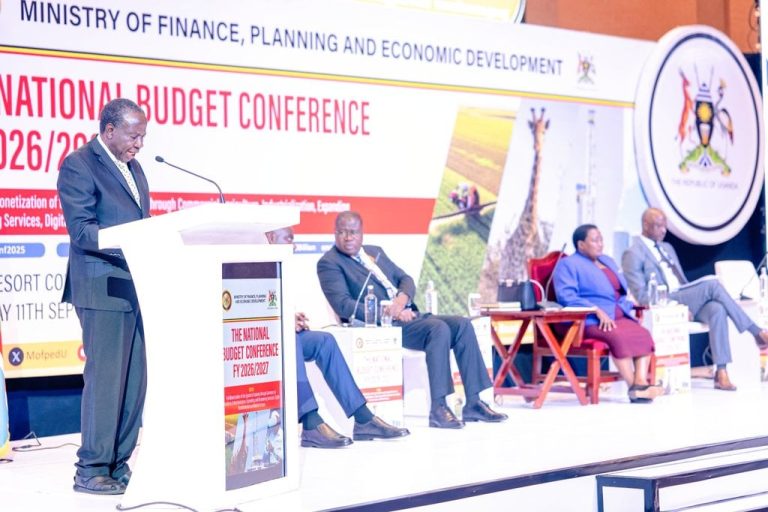The Uganda Development Finance Summit 2025 opened on Monday at Speke Resort Munyonyo with leaders, financiers, and experts stressing the urgent need to reimagine Africa’s financing architecture.
The two-day event, convened by the Uganda Development Bank (UDB), aims to foster collaboration among development finance institutions (DFIs), governments, and the private sector to accelerate inclusive and sustainable growth.
The summit was officially opened by President Museveni who was accompanied by the First Lady, Janet.
In his opening remarks, UDB Board Chair Geoffrey Kihuguru said the summit was not just a meeting of leaders but a demonstration of the central role development finance plays in Africa’s transformation journey.
“Development banks have provided long-term affordable capital, yet their true role goes beyond finance. They are thought leaders and catalysts of social economic transformation, creating spaces such as this summit to bring together governments, private sector, and civil society,” he said.
Kihuguru noted that Africa was facing overlapping crises, including climate change, geopolitical tensions, and high youth unemployment, which demanded innovative financing solutions.
“National development banks working in partnerships with other DFIs are uniquely placed to rise to this challenge. They can design innovative instruments that expand inclusion, finance underdeveloped regions, and create gender-responsive solutions,” he said.
UDB Managing Director Patricia Ojangole also called for bold reforms in development finance.
“The summit is not just a meeting of minds. It is a call to action,” she said. “Our continent is rich yet challenged by global shifts. We must build resilient, inclusive, and locally anchored financial systems. At the heart of this transformation lies the role of national development banks.”
She pointed to the role of such banks in Asia and South America, where they have powered rapid growth.
“The growth in Asia and South America, specifically in China and the Asian Tigers, as well as Brazil, is largely credited to their well-capitalised and performing national development banks,” she said.
Ojangole explained that in Uganda, UDB directs over 80% of its funding to agriculture, manufacturing, and infrastructure.
“Only 11% of private sector credit goes to agriculture and 12% to manufacturing, while more than 45% goes to real estate and personal loans. This is why national development banks are essential—to fill the financing gap in productive and growth-enhancing sectors,” she said.
She stressed the importance of financing climate change adaptation, digital transformation, and industrialisation.
“Climate change demands refinancing solutions. Digital transformation is reshaping economies. National development banks can finance digital infrastructure, support tech start-ups, and bridge the digital divide,” she said.
Kihuguru highlighted the exclusion of women from finance as a key challenge. “Too often, women are excluded from finance because they lack traditional collateral like land. It is our duty to rethink lending models so that women can access financing on terms that reflect their potential, not just their assets,” he said.
Both speakers emphasised the need for quality, bankable projects to attract global investment.
“The world has resources, especially for green and social investments. But what is missing are viable projects. By structuring and preparing these opportunities, national development banks can unlock global capital flows,” Kihuguru said.
Delegates are expected to spend the two days sharing experiences, identifying regulatory bottlenecks, and proposing practical solutions to accelerate Africa’s development.
The summit objectives include strengthening partnerships, exchanging best practices, generating policy recommendations, and exploring innovative financing solutions.
Organisers say it is part of a wider effort to build Africa’s sovereign financing capacity and reduce reliance on expensive foreign debt.

